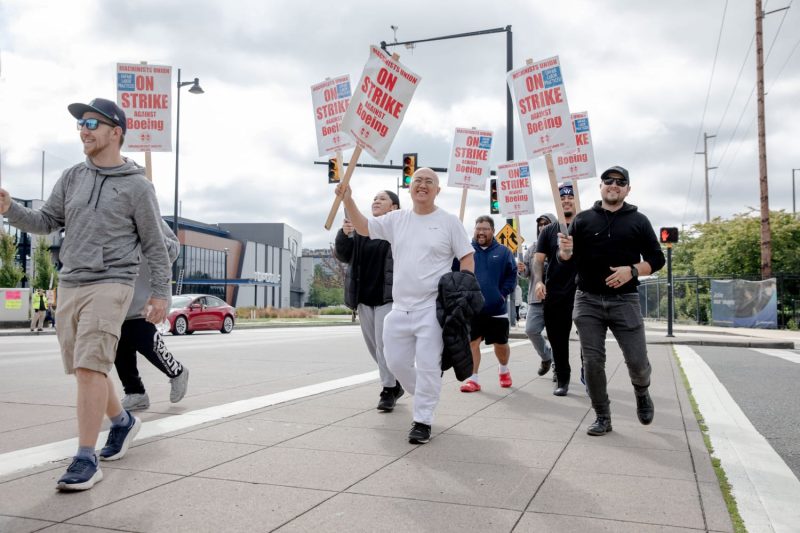In a dramatic turn of events, the ongoing strike at the Boeing factory has now crossed the one-month mark, leading to increased pressure on the new CEO to resolve the escalating conflict. The strike, initiated by union workers demanding better wages and improved working conditions, has disrupted production at the aerospace giant’s facilities, causing delays in aircraft manufacturing and delivery timelines.
Amidst the standoff between management and employees, tensions continue to escalate as negotiations have failed to yield a resolution. The union, representing thousands of workers, remains firm in its stance, insisting on fair compensation and comprehensive measures to address workplace grievances. The prolonged strike has not only impacted Boeing’s operations but has also strained relationships between the company and its workforce.
As the strike enters its second month, the pressure on the new CEO to find a swift and equitable solution to the dispute has intensified. With stakeholders closely monitoring the situation, the CEO faces mounting scrutiny over his ability to navigate this challenging labor relations crisis effectively. The outcome of the strike will undoubtedly have far-reaching implications for Boeing’s reputation, financial performance, and future employee relations.
The strike’s duration has highlighted deeper issues within Boeing’s organizational culture and labor practices, underscoring the need for a sustainable and inclusive approach to labor relations. The prolonged standoff serves as a wake-up call for the aerospace industry to prioritize employee welfare and foster a harmonious work environment that values the contributions of all stakeholders.
As the impasse continues, both sides must demonstrate flexibility, empathy, and a willingness to engage in constructive dialogue to reach a mutually beneficial agreement. The resolution of the strike will not only determine the immediate fate of Boeing’s operations but will also shape the company’s long-term relationship with its workforce and set a precedent for labor relations in the aerospace sector.
In conclusion, the ongoing strike at the Boeing factory has entered a critical phase, with mounting pressure on the new CEO to address the demands of union workers and find a resolution to the protracted dispute. As the standoff persists, the need for effective communication, transparency, and mutual respect between management and employees becomes increasingly crucial in restoring trust and ensuring a sustainable future for Boeing and its workforce. The outcome of this conflict will undoubtedly leave a lasting impact on the aerospace industry and set the tone for future labor relations within the sector.

